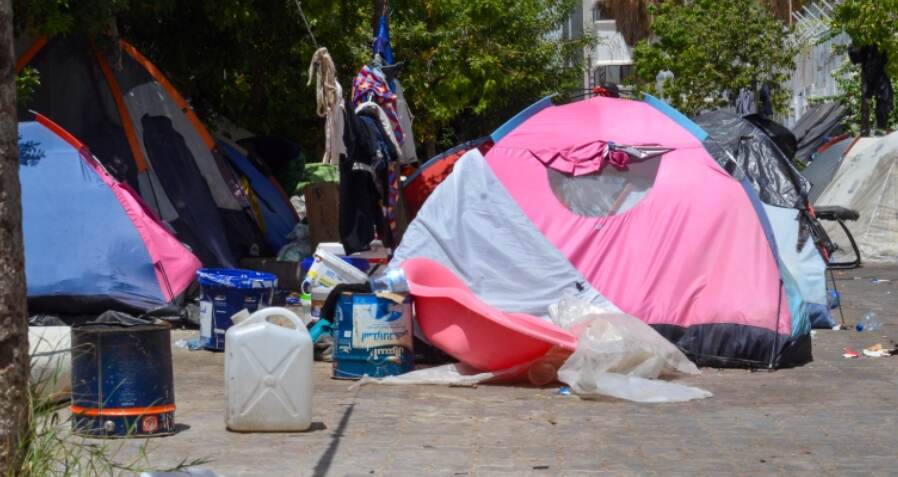Migrants in Tunisia Struggle to Survive as Heatwave Hits 50°C, Urgent Action Needed
Migrants and refugees in Tunisia endure unbearable conditions as a scorching heatwave sweeps the country, leaving them exposed and vulnerable to heat exhaustion. Urgent measures are needed to ensure their safety.
As a blistering heatwave sweeps across Tunisia, migrants from sub-Saharan African countries are facing unbearable conditions, with temperatures reaching 50 degrees Celsius (122 degrees Fahrenheit) in the capital, Tunis. The makeshift camp outside the offices of the International Organization for Migration (IOM) is practically deserted, with empty tents scattered on the burning pavement.
Wildfires ravage Algeria and Tunisia amid record heat pic.twitter.com/mEAm8MP6E2
— The National (@TheNationalNews) July 24, 2023
The migrants, including refugees, are struggling to cope with the relentless heat, leaving them feeling exhausted and stressed. For many in Tunisia, the current heatwave is a worrying anomaly. Cold tap water turns hot, unprotected food spoils, and stray dogs and cats compete for shaded areas.
The lack of respite is even more dangerous for the irregular black migrants and refugees living rough in the cities and desert, as they have little chance to cool down and recover from the intense heat. The risks of heat exhaustion and stroke are greatly increased for them.
The migrants in the camp outside the IOM offices are dependent on the help provided by the organization. However, they are unable to provide shelter, leaving the migrants exposed to the sweltering heat. Many complain that the ground they sleep on rarely cools down, even at night, adding to their discomfort and risking their health.
The situation is dire for pregnant women among the migrants. Kelly, one of the refugees, expressed his concern for his pregnant wife who remains on the streets in the stifling heat. Despite the assistance of IOM staff in distributing water and monitoring her health, they cannot provide shelter for the couple.
Kelly longs for stable employment and a home where their child can be born. The extreme heat also affects migrants in the city of Sfax, where they are forced to rent spaces under olive trees to escape the scorching temperatures.
The conditions they face are dire, and the recent violence in Sfax following the death of a local man during clashes with black migrants in July adds further uncertainty and danger to their lives. The lack of affordable air conditioning in non-urban areas exacerbates the situation.
Many people cannot afford air conditioning units and some distrust them, believing they are detrimental to their health. As the heatwave continues, it becomes increasingly challenging for people to cope with the soaring temperatures. The psychological aspect of living in the heat without any means of escape adds to the difficulty faced by migrants living rough.
Tunisia's recent deal with the European Union to bolster border security aims to prevent irregular migration to Europe, but as climate change intensifies, more people will seek refuge in Europe to escape extreme climate conditions.
The plight of migrants and refugees in Tunisia is a stark reminder of the challenges faced by those fleeing poverty and conflict and seeking safer and more livable conditions. As the heat takes its toll on the migrants outside the IOM offices, their clothes drip with sweat.
The lack of relief from the heat is evident, and the impact on their well-being is severe. Urgent measures are needed to address the extreme heat conditions faced by migrants in Tunisia and ensure their safety and well-being in these challenging times.




